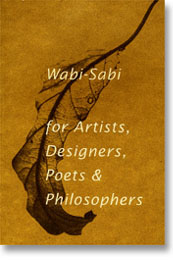
Wabi Sabi is a beauty of things imperfect, impermanent, and incomplete. It is a beauty of things modest and humble. It is a beauty of things unconventional.
In Japan, nature, as reflected in Shintoism, has a sacred character. “Truth comes from observing nature,” and the three most important lessons learned from contact with it are:
– “All things are changeable, in the long run everything vanishes into oblivion and non-existence.”
– “All things are imperfect, nothing that is free from imperfections.”
– “All things are incomplete everything is in a constant, perpetual state of transformation or dissolution.”
To help you better understand this particular Japanese way of seeing the world and understanding imperfection as beauty, it’s worth reviewing this BBC article about it.
Some quotes from the book:
“The beauty of Wabi-sabi is, in a sense, the acceptance of what is considered ugly”.
“The Wabi Wise suggests that beauty is a dynamic event that occurs between oneself and something else. “
“To experience the Wabi Sabi you need to slow down, be patient and look very closely.”
The author, Leonard Koren, american artist and architect, specialist in aesthetics, approaches the Wabi Sabi in one of the most influential works of aesthetic theory of the last 30 years. To get to know him and his work better, it’s worth reading the interview they did last January in El País (spanish language)
More about “Beauty” at 3peusdegat
